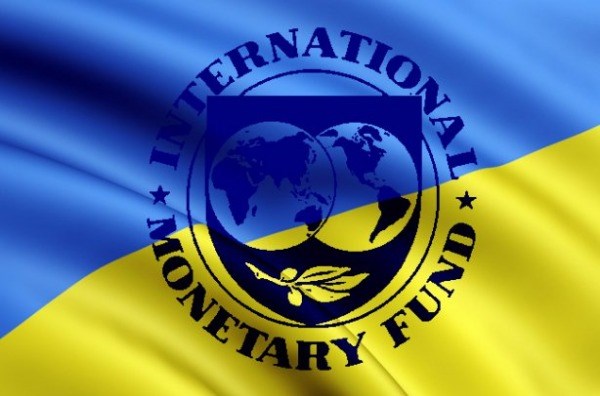Ukraine and IMF have not yet agreed on updated memorandum on cooperation
According to the Deputy Finance Minister of Ukraine, Artem Chevalier, Ukraine and the IMF have not yet agreed on the updated version of the memorandum on cooperation. This memorandum would detail the provision of new loans for Ukraine.
After a press conference in Kiev, Chevalier said that “we do not have the updated version of the memorandum yet”.
He also did not give a possible date for resuming Ukraine’s cooperation with the fund. In response to a question about the nature of the possible issues surrounding this delay, he referred to a recent statement made by the IMF Managing Director, Christine Lagarde,in which she said that the slow pace of implementing reforms, as well as corruption in the country, were the main problems.
The signing of the memorandum will enable the IMF to schedule the date of the board meeting in which the third tranche worth 1.7 billion dollars will be approved. Ukraine received the first two tranches in 2015, which amounted to 6.7 billion dollars.
It was previously assumed that the memorandum would be signed and sent to IMF headquarters after a government report at the Verkhovna Rada. This should be done any time after the 16th of February.
The IMF began discussions in Kiev last September but suspended these talks on the 2nd of October last year. This suspension was due to the local elections, the discussions within the country regarding tax reforms and the 2016 draft state budget. Discussions did, however, resume last November.
Currently, Ukraine and the IMF are discussing a wide range of issues within the framework of the second revision of the cooperation program. These include aspects of monetary issues, banking issues, the anti-corruption policy, pension reforms and privatization issues.
Receiving the third tranche of the loan is essential for Ukraine as this decision of the IMF would allow Ukraine to receive an additional 2.3 billion dollars of financial aid. This amount consists of 1 billion dollars in the form of guarantees from the US government, and credit tranches from the European Union and the World Bank.
Another reason for the suspension of work that the previous resignation of several ministers has increased the prospect of a possible resignation of the entire government. The Minister of Agrarian Policy and Food, Alex Pavlenko; the Minister of Infrastructure, Andrew Pivovarsky; the Minister of Healthcare, Alexander Kvitashvili and the Minister of Economic Development and Trade, Aivaras Abromavicius, had all issued their resignations.
The resignation of Abromavicius caused the most severe reaction in the business sector and in the diplomatic community. He had previously accused representatives of the Bloc Petro Poroshenko faction of exerting pressure on the Economic Development Ministry. After Abromavicius’ resignation, his deputies followed suit. This included the Trade Representative of Ukraine, Natalia Mykolskaya. Representatives of the IMF and the US State Department, as well as nine countries including the “Big Seven” members had all expressed their concern regarding these resignations.
During a government meeting held on the 4th of February, Alex Pavlenko, Andrew Pivovarsky and Alexander Kvitashvili all withdrew their resignations. However, Abromavicius stated that he would not change his decision on leaving the government.
On the 10th of February, Lagarde said that it would be difficult for the IMF to continue its cooperation with Ukraine if the country does not implement reforms and if they do not show results in the fight against corruption.
Her words led to a number of statements made by Ukrainian authorities expressing the need to resume reform plans.
On the 16th of February, the Ukrainian Prime Minister presented a report on the results of the work of the government in 2015. Their work was voted as unsatisfactory by the MPs. However, a decision approving the resignation of the government did not gather the sufficient number of votes.
In March 2015, the IMF approved a lending program for Ukraine that uses the Extended Funds Facility mechanism (EFF). The loan was worth 17.5 billion dollars and was to be distributed over a four-year period. Ukraine received the first tranche, worth 5 billion dollars, on the 13th of March. The second tranche, worth 1.7 billion dollars, was received on August 4th.
